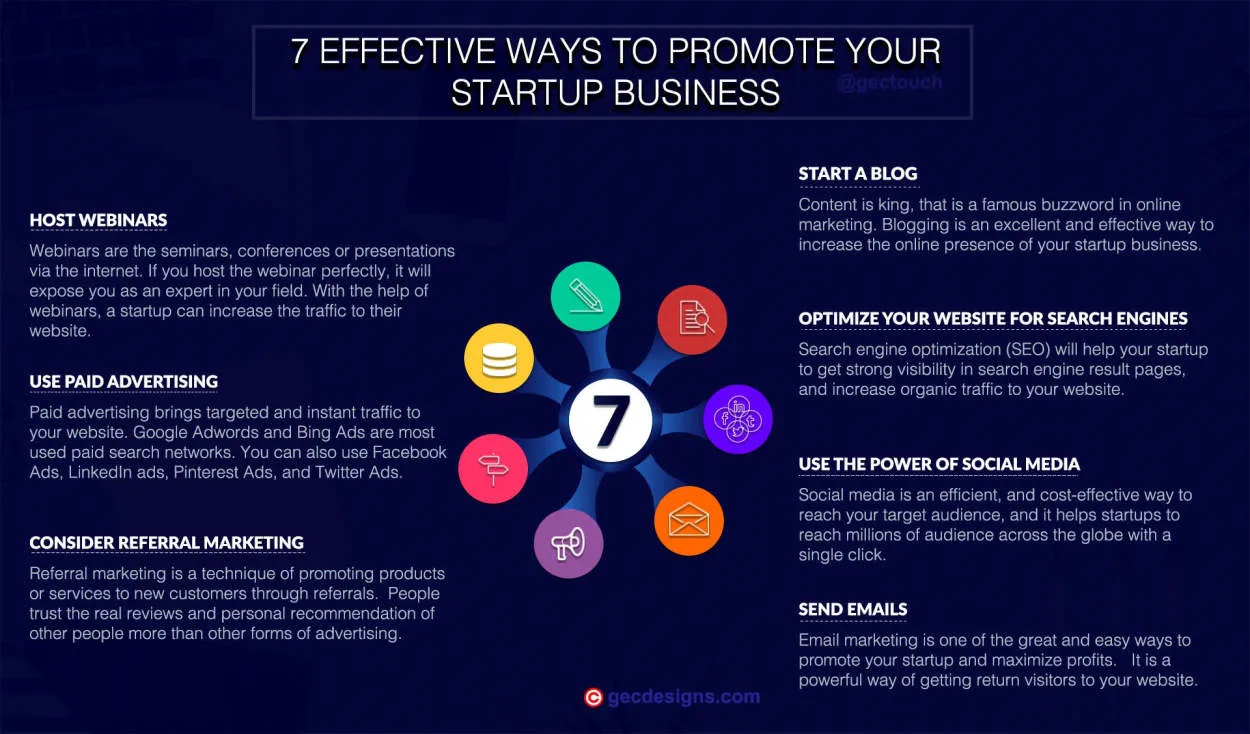Are you a startup entrepreneur looking for effective business strategies to take your venture to the next level? In this article, we will explore a range of proven strategies that can help startups thrive in today’s competitive landscape. From marketing tactics to financial management tips, we’ve got you covered.
Building a Strong Brand Identity
In order for startups to succeed in today’s competitive business landscape, it is crucial to develop a strong brand identity. A brand identity is more than just a logo or a catchy tagline; it encompasses the overall image and perception that customers have of your company.
Here are some effective strategies that startups can implement to build a strong brand identity:
-
Define Your Brand Values
Start by clearly defining the values that your brand stands for. What do you want to be known for? Identify the key characteristics and principles that set your brand apart from others.
-
Create a Memorable Logo
A well-designed logo can help visually communicate your brand’s personality and values. Invest in a professional designer who can create a unique and memorable logo that reflects your brand identity.
-
Consistent Brand Messaging
Ensure that all your communication channels, including your website, social media profiles, and marketing materials, consistently convey your brand’s messaging. This will help establish a cohesive and unified brand image.
-
Engage with your Target Audience
Interact and engage with your target audience through social media, events, and other channels. Building relationships with your customers will not only help create brand loyalty but also provide valuable insights into their needs and preferences.
-
Deliver Exceptional Customer Experience
Your brand identity should also be reflected in the way you deliver products or services. Strive to provide exceptional customer experience at every touchpoint, from pre-purchase interactions to post-purchase support.
-
Monitor and Adapt
Regularly monitor and evaluate how your brand is perceived in the market. Stay updated on industry trends and adapt your brand strategy accordingly to remain relevant and competitive.
Targeting the Right Market Segment
In today’s highly competitive business landscape, it is crucial for startups to have effective strategies in place to ensure their success. One key aspect of these strategies is targeting the right market segment. By defining and focusing on a specific group of customers who are most likely to be interested in their products or services, startups can maximize their chances of achieving sustainable growth.
Identifying the right market segment begins with thorough market research. Startups need to analyze various factors such as demographics, psychographics, and behavior patterns of potential customers. This will help them gain insights into their target audience’s needs, preferences, and purchasing behaviors.
Once the target market segment has been identified, startups can tailor their marketing efforts to effectively reach and engage with these customers. This includes developing a clear value proposition that addresses their specific pain points and demonstrates the unique benefits of the startup’s offerings.
Moreover, startups should consider utilizing online platforms and social media channels to connect with their target market segment. These channels provide cost-effective means of reaching a wider audience and building brand awareness.
Regular monitoring and analysis of consumer feedback and market trends are also essential. This enables startups to adapt their strategies and offerings to better meet the evolving needs and preferences of their target market segment.
In conclusion, targeting the right market segment is a critical component of effective business strategies for startups. By understanding the specific needs and preferences of their target audience, startups can develop tailored marketing initiatives that will resonate with their customers and drive business growth.
Creating a Scalable Growth Plan
In order to achieve long-term success, startups need to develop effective business strategies that focus on scalability. Here are some key steps to creating a scalable growth plan:
-
Define Clear Goals:
Start by setting specific and measurable goals that align with your overall business objectives. These goals should be attainable and time-bound.
-
Identify Target Market:
Conduct comprehensive market research to understand your target audience’s needs, preferences, and behaviors. This information will help tailor your products or services to meet their demands.
-
Build a Strong Value Proposition:
Differentiate your startup by clearly communicating the unique value you offer to customers. Develop a compelling value proposition that highlights the benefits and advantages of your products or services.
-
Create a Scalable Business Model:
Design a business model that can grow and adapt to changing market conditions. This includes identifying key revenue streams, cost structures, and operational processes.
-
Develop a Marketing Strategy:
Implement a targeted marketing strategy to reach and engage your target market effectively. Utilize various channels such as digital marketing, social media, content marketing, and public relations to create brand awareness and generate leads.
-
Invest in Technology and Infrastructure:
Leverage technology to streamline business operations, automate processes, and enhance overall efficiency. This allows for scalability without compromising quality or customer satisfaction.
-
Build a Talented Team:
Recruit skilled individuals who align with your startup’s vision and values. Foster a collaborative and innovative work environment to attract and retain top talent.
-
Monitor and Analyze Performance:
Continuously track and analyze key performance indicators (KPIs) to measure the effectiveness of your growth plan. Identify areas of improvement and make data-driven decisions to optimize business performance.
By following these steps and consistently reviewing and adjusting your growth plan, your startup can position itself for long-term success in a competitive business landscape.
Conclusion
In conclusion, implementing effective business strategies is crucial for the success of startups. By carefully planning and setting clear goals, startups can navigate the challenges they face and increase their chances of long-term sustainability. Additionally, adapting to market changes, focusing on customer satisfaction, and embracing innovation are key elements for startups to remain competitive in today’s dynamic business landscape.




